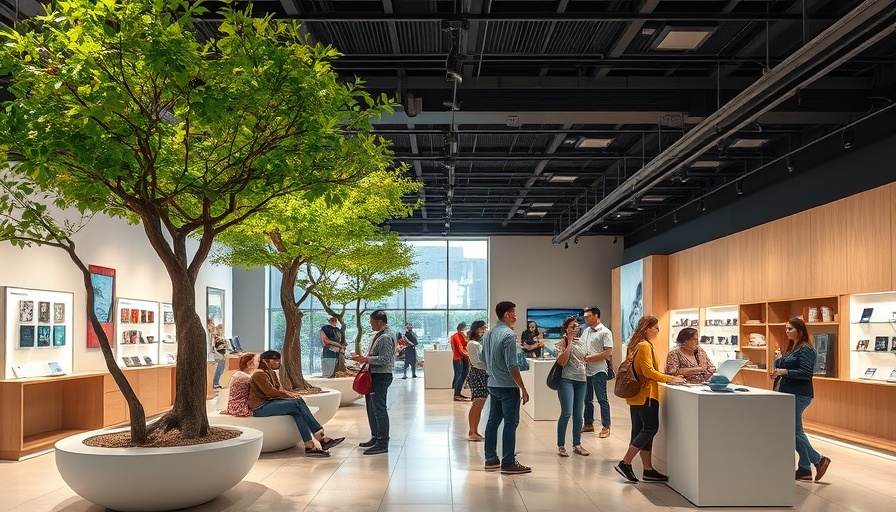
The Evolving Landscape of Sustainability Perception
As a boutique hospitality professional, understanding how guests perceive sustainability can make all the difference in your brand's market value. With growing environmental awareness, consumers are increasingly choosing accommodations based on their sustainability practices. This shift isn’t merely a trend; it’s shaping the very core of brand loyalty and customer choices in today's eco-conscious society.
How Perceived Sustainability Impacts Customer Choices
In the boutique hospitality sector, where every detail counts, sustainability can be a significant differentiator. Travelers are looking for more than just a place to stay; they are now seeking experiences that resonate with their values. Research indicates that brands recognized for their commitment to sustainable practices enjoy a higher level of trust among consumers. This correlation can boost occupancy rates and enhance brand equity.
Embracing the Circular Economy
One practical measure for boutique hospitality businesses is embracing the circular economy model. This approach minimizes waste by keeping products and materials in use for as long as possible. Consider implementing practices such as reusing furniture, using sustainable packaging, or establishing a zero-waste policy to minimize your ecological footprint. Not only does this attract eco-driven customers, but it also reinforces your brand's commitment to responsible business practices, which is increasingly valued in today’s marketplace.
Innovations in Sustainable Practices
Innovation in sustainable practices is another critical element. Implementing solutions that promote sustainability can lead to enhanced customer satisfaction. For instance, offering plant-based meals or utilizing energy-efficient appliances can significantly reduce a hotel’s carbon footprint. Such practices not only appeal to the growing demographic seeking sustainable options but also endorse a regenerative business model that focuses on healing our planet rather than just taking from it.
Corporate Social Responsibility in Hospitality
Corporate Social Responsibility (CSR) is becoming a requisite for brands aiming to thrive in the competitive landscape of boutique hospitality. Customers are increasingly favoring brands that actively engage in social and environmental issues. By integrating CSR into your operational strategy and showcasing such commitments at every customer touchpoint, you can effectively cultivate a loyal customer base that appreciates transparency and accountability.
The Impact of Sustainable Innovation on Brand Value
Investing in sustainable innovation not only elevates a brand's image but also can lead to substantial cost savings in the long run. For example, sourcing eco-friendly materials may have higher initial costs but often results in lower operational costs and waste disposal fees over time. Highlighting these innovations in your marketing efforts can significantly enhance your appeal amid a growing market of discerning consumers seeking authentic and sustainable options.
Decisions You Can Make to Enhance Sustainability
Now, more than ever, it’s essential for small hotel owners and Airbnb hosts to critically evaluate their current practices. Decisions about waste management, energy consumption, and sourcing materials should be made with sustainability in mind. Explore options for local partnerships, engage with sustainability consultants, or invest in training for staff to strengthen your green initiatives.
Actionable Tips for Boutique Hospitality Professionals
To ensure your establishment thrives within this sustainable framework, consider adopting these actionable strategies: 1) Create a comprehensive recycling program; 2) Use eco-friendly cleaning products; 3) Promote local food sourcing in your dining areas. Implementing such measures not only bolsters your sustainability efforts but also connects with environmentally conscious travelers.
In conclusion, the journey toward sustainability in boutique hospitality requires commitment and continuous improvement. By recognizing the impact of your sustainability practices on brand value and customer perception, you can position your business as a leader in eco-friendly practices, ensuring long-term success in a growing market.
 Add Row
Add Row  Add
Add 




 Add Row
Add Row  Add
Add 

Write A Comment